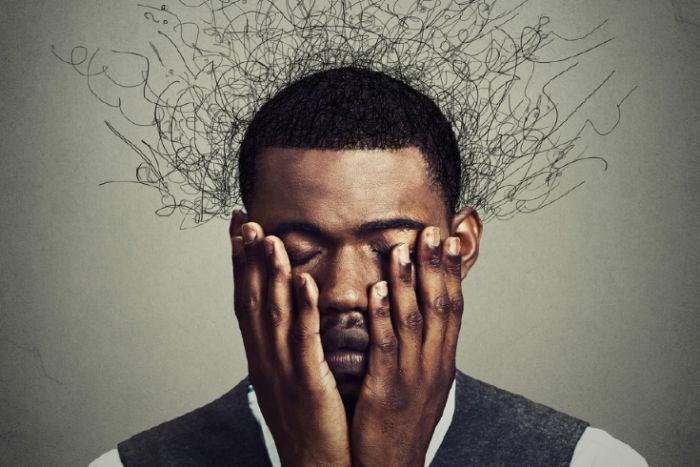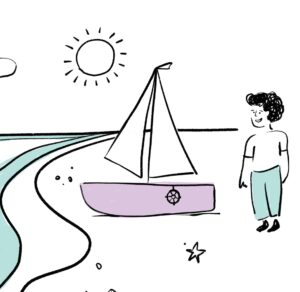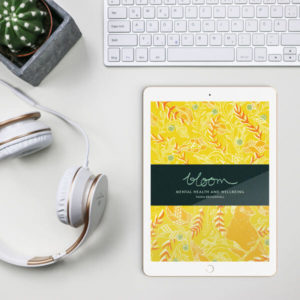The annual RUOK day campaign has again centred attention on the importance of checking in with your family and friends and asking them if they are ok.
With the shadow pandemic of mental health issues, increased workloads and economic pressures, the message of positively connecting with loved ones has never been more important.
Am I OK?
However, as well as connecting with those we care about, we should also pay attention to our own mental health and wellbeing. So, as we enter the part of the year when we all tend to complain about how busy we are, we ask you to pause and reflect on ‘AM I OK?’
Sometimes we are so busy working, studying, parenting, doing… doing… doing. In this flux of responsibilities, roles and relationships, we may not be consciously considering how we are doing. It may seem self-indulgent to stop and think about how we are feeling. Instead we push ourselves to do more and more and more. However this is the perfect recipe for burnout, disconnection and increased risks to our mental wellbeing.
Stop and Reflect
Unfortunately many of us don’t think about our mental health proactively. But stop, reflect on where you’re at and how you’re going. Your mental health isn’t something that just happens to you. It’s not only a passive process. It’s a very active process. How you’re feeling is something that you can greatly influence. However it’s much easier to influence this preventatively than simply reactively.
Close Your Eyes
Imagine a string stretching across the room that you are in. On the left hand side of the room is the space where we are emotionally struggling, not doing well; feeling overwhelmed; emotionally distressed; not really well connected with others.
Over the right hand side of the room is where we are really thriving and buoyant! We are emotionally resilient, able to deal with the daily pressures of life, able to experience and manage our emotions really well. We are well and able to fulfil the roles that we choose to and are connected with others.
Imagine
Still with your eyes closed, I want you to imagine where you currently sit on that continuum.
Are you down the left hand side? Struggling, maybe masking beautifully, but inside you recognise that you’re not travelling well. Life has become a chore, you are feeling distressed, overwhelmed, disconnected, hollow, distressed a lot of the time.
Or, are you on the right hand side? You’re feeling fabulous. You’re strong and optimistic and resourceful. Able to deal with whatever comes your way with confidence. You’re feeling connected and buoyant.
Ask Yourself, Am I OK?
Pause and consider, based on where you are on the continuum, do you need support?
There are so many ways to get mental health support nowadays. You can visit your GP, get a referral to a psychologist, and look at holistic treatment options. There are many evidence based websites and books where you can get support – those based on cognitive behavioural therapy, acceptance and commitment therapy or mindfulness based practices may help you learn skills and strategies to improve your mental wellbeing.
You can learn stress management strategies such as meditation. You don’t have to go through it alone, get some help. Resource yourself with the skills and professional assistance to look after your mental health and to deal with any problems that may arise.
Sometimes We Need Help
Sometimes we need more skills or knowledge than we currently have. If you had a heart problem you would see a heart specialist as they have the expertise to help you to get the necessary treatment and recover right? With a mental health problem you should see a mental health professional to do the same.
Importantly
If you find yourself at a point where you are feeling overwhelmed, or where you are having thoughts of suicide, take this seriously. If it was a loved one feeling this way, you would connect them with help. Do the same for yourself.
Many people will have thoughts of suicide in their lifetime but you do not have to act on them. It can be scary to feel like you have no other way of dealing with what you’re facing. However help is available.
You Don’t Have To Be Alone
Get urgent support. A helpful resource is the Suicide Call Back service: 1300 659 467
Have compassion for yourself by prioritising your own mental health and wellbeing. Your mental health doesn’t have to be everyone else’s business, but it should be your own.
-
 Healthy Minds, Flourishing Workplaces | eLearning Course$198.00 inc.GST
Healthy Minds, Flourishing Workplaces | eLearning Course$198.00 inc.GST -
 Building Buoyancy | eLearning Course*$180.00 inc.GST
Building Buoyancy | eLearning Course*$180.00 inc.GST -
 BLOOM! Mental Health and Wellbeing eBook$22.00 inc.GST
BLOOM! Mental Health and Wellbeing eBook$22.00 inc.GST



